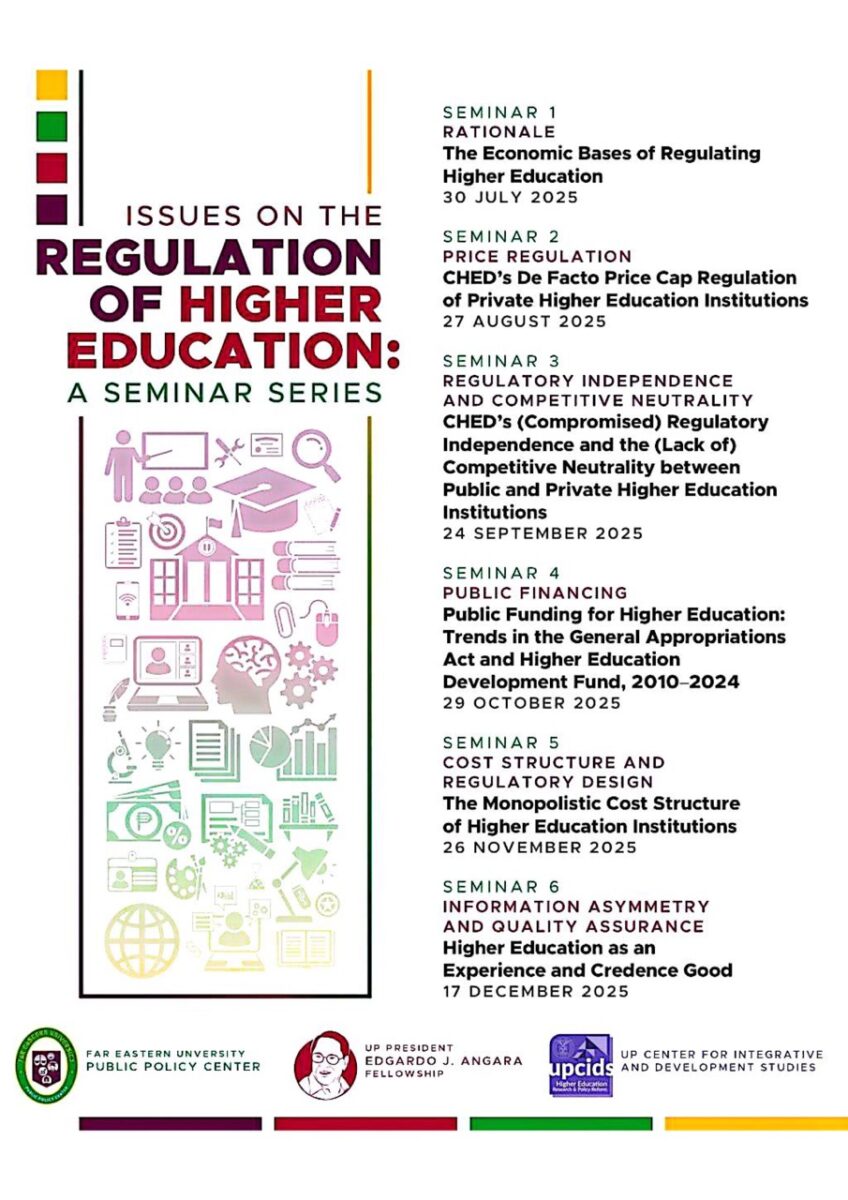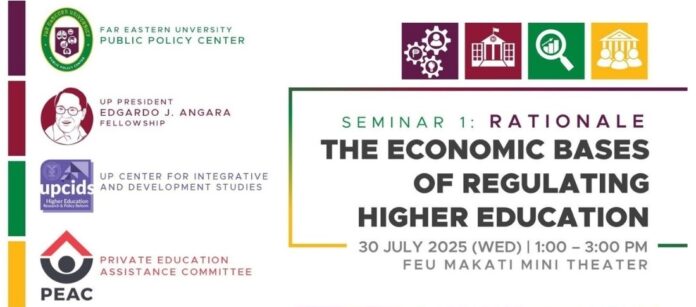In a decisive move to reframe the national conversation on academic governance, the Far Eastern University Public Policy Center (FEU PPC) is launching its newest seminar series: Issues on the Regulation of Higher Education. Kicking off on Wednesday, July 30, the series brings together leading experts in policy, economics, and education to unpack the interlocking regulatory challenges shaping Philippine higher education.
The inaugural session, The Economic Bases of Regulating Higher Education, will take place from 1:00 to 3:00 P.M. at the FEU Makati Mini Theater. It will be led by Dr. Michael M. Alba, President of FEU PPC and UP President Edgardo J. Angara Fellowship Awardee, whose research has reignited discourse on sectoral autonomy and the role of market forces in education reform.
Dr. Alba will be joined by a distinguished panel of thought leaders:
- Dr. Philip Arnold P. Tuaño, President of the Philippine Institute for Development Studies and former Dean of the Ateneo School of Government, who brings deep expertise in policy and governance
- Dr. Emmanuel S. De Dios, Professor Emeritus at the UP School of Economics and FEU PPC Board Member, with decades of scholarship in economics and policy analysis
- Dr. Vicente K. Fabella, President of Jose Rizal University and Chair of the Policy Committee at the Philippine Association of Colleges and Universities, offering practical insights from the private education sector
- Dr. Maria Cynthia Rose B. Bautista, EDCom II Advisory Council Member and former CHED Commissioner, contributing her extensive experience in education policy and innovation.
This series arrives at a pivotal moment for Philippine higher education, which faces mounting pressure to address the country’s long-standing learning crisis while balancing quality assurance, equitable access, and private-public complementarity. The FEU PPC aims for the discussions to examine how a regulatory-economics framework—one that aligns national aspirations, delivery constraints, stakeholder incentives, and the diverse contexts of higher education—can support the attainment of the aspired-for outcomes in higher education.
“Public discourse on education has thus far sidestepped the governance-outcomes nexus. It is high time that the country adopted a holistic, systemic perspective—one that clearly articulates national goals and holds an independent regulator accountable for driving higher education outcomes toward the realization of these goals,” said Dr. Alba.
The seminar is open to educators, policymakers, academic administrators, and members of the public interested in shaping meaningful reform. The FEU PPC encourages participation through its official channels, where registration and event updates are available.
Through this initiative, the FEU PPC continues to strengthen its role as a hub for policy dialogue, creating platforms where evidence-based analysis and inclusive engagement can shape the future of Philippine education.

